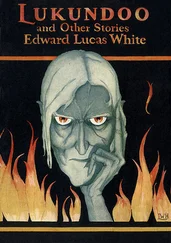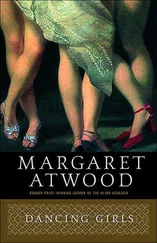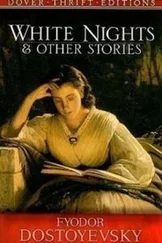Margaret Oliphant - A Widow's Tale, and Other Stories
Здесь есть возможность читать онлайн «Margaret Oliphant - A Widow's Tale, and Other Stories» — ознакомительный отрывок электронной книги совершенно бесплатно, а после прочтения отрывка купить полную версию. В некоторых случаях можно слушать аудио, скачать через торрент в формате fb2 и присутствует краткое содержание. Издательство: Иностранный паблик, Жанр: foreign_prose, на английском языке. Описание произведения, (предисловие) а так же отзывы посетителей доступны на портале библиотеки ЛибКат.
- Название:A Widow's Tale, and Other Stories
- Автор:
- Издательство:Иностранный паблик
- Жанр:
- Год:неизвестен
- ISBN:нет данных
- Рейтинг книги:3 / 5. Голосов: 1
-
Избранное:Добавить в избранное
- Отзывы:
-
Ваша оценка:
- 60
- 1
- 2
- 3
- 4
- 5
A Widow's Tale, and Other Stories: краткое содержание, описание и аннотация
Предлагаем к чтению аннотацию, описание, краткое содержание или предисловие (зависит от того, что написал сам автор книги «A Widow's Tale, and Other Stories»). Если вы не нашли необходимую информацию о книге — напишите в комментариях, мы постараемся отыскать её.
A Widow's Tale, and Other Stories — читать онлайн ознакомительный отрывок
Ниже представлен текст книги, разбитый по страницам. Система сохранения места последней прочитанной страницы, позволяет с удобством читать онлайн бесплатно книгу «A Widow's Tale, and Other Stories», без необходимости каждый раз заново искать на чём Вы остановились. Поставьте закладку, и сможете в любой момент перейти на страницу, на которой закончили чтение.
Интервал:
Закладка:
"Perhaps I could see your mother," said the old wife. She felt herself growing a little faint. The day was warm, and she had been travelling all night. Was not that enough to account for it? And this happy babble in her ear made her heart sick, which was more.
"Mamma? Oh yes, certainly she will be very glad to see you. She always wanted to see some of the relations. She said it was not natural; though, to be sure, at his age – Shall I go and tell her you want to see her – her and not me? But you must not take any prejudice against me. Don't, please, if you are his relation: and you look so nice too. I know I should love you if you would let me."
"Let me see your mother. I have no – prejudice." She scarcely knew what she was saying. The room was swimming in her eyes, the green of the closed blinds waving up and down, surrounding her with an uncertain mist of colour, through which she seemed to see a half-reproachful, wondering look. And then the white figure was gone. Mrs Lycett-Landon leant her head upon the back of the chair, and for a minute knew nothing more. Then the greenness became visible again, and gradually everything wavered and circled back into its place.
The little house was very still; there were hurried steps overhead, as if two people were moving about. It was the mother hastily being put in order for a visitor – her cap arranged, a clean collar put on, the young wife dancing about her in great excitement to make all nice. This process of decoration occupied some time, and as it went on the visitor came fully to herself. What should she do? As she recovered full command of herself she shrunk from inflicting such a blow even upon the mother. Should she go away before they came down? – disappear like a dream, take no notice, but leave the strange little drama – what was it, comedy or tragedy? – to work itself out? Why should she interfere, after all? If he liked this best – and all the harm was now done that could be done – the best thing was to go away and take no more notice. She had risen with this intention to slip away, to let herself out, not to interfere, when another sound became audible – the sound of a door opening in the back part of the house. Then a voice called "Rose" – a voice which, in spite of herself, made the visitor's brain swim once more. She had to stop again perforce. And then a step came towards the room in which she was; a heavy step, with a little gouty limp in it – a step she knew so well. It came along the passage, accompanied by a running commentary of half-complaint. "Where are you? I want you." Then the door of the little drawing-room was pushed open. "Why don't you answer me?" He paused there in the doorway, seeing a stranger – with a quick apology – "I beg your pardon." Then suddenly there came from him a cry – a roar like that of a wounded animal – "Eleanor!"
Neither of the two ever forgot the appearance of the other. She saw him with the little passage and its stronger light opening behind him, his large figure relieved against it; the sudden look of consternation, horror, utter amaze in his face. Horror came first; and then everything yielded to the culprit's sense of unspeakable downfall, guilt self-convicted and without excuse. He fell back against the wall; his jaw dropped; his eyes seemed to turn upon themselves in a flicker of mortal dismay. The entire failure of all force and self-defence did not disarm his wife, as might have been supposed, but filled her with a blaze of sudden vehemence, passion which she could not contain. She had said his name as he said hers, in a quiet tone enough; but now stamped her foot and cried out, feeling it intolerable, insupportable. "Well!" she cried, "stand up for it like a man! Say you are sick of me, of your children, of living honestly these fifty years. Say something for yourself. Don't stand there like a whipped child."
But the man had nothing to say. He stood against the wall and looked at her as if he feared a personal assault. Then he said, "She is not to blame. She is as innocent as you are."
"I have seen her," said the injured wife. "Do you think you need to tell me that? But then, what are you?"
He made no reply. And the sight of him in the doorway was unbearable to the woman. If he had stood up for himself, made a fight of any kind, it would have been more tolerable. But the very sight of him was insupportable – something she could not endure. She turned her head away and went quickly past him towards the open door. "I meant to tell her mother." She scarcely knew whether she was speaking or only thinking. "I meant to tell her mother, but I cannot. You must manage it your own way."
Next moment she found herself out in the street, walking along under the shadow of the blank wall. She was conscious of having closed both doors behind her, that of the house and that of the garden. If she could but have closed the door of her own mind, and put it out of sight, and shut it up for ever! She hurried away, walking very quickly round one corner after another, through one street after another, of houses enclosed in walls and railings, withdrawn among flowers and trees. You may walk long through these quiet places without finding what she wanted – a cab to take her out of this strange, still, secluded town of villas. When she found one at last, she told the driver to take her back to the Euston, but first to drive round Hyde Park. He thought she must be mad. But that did not matter much so long as she was able to pay the fare. And then there followed what she had wanted, a long, endless progress through a confusion of streets, first quiet, full of gardens and retired houses; then the long bustling thoroughfares leading back into the noisy world of London; then the quiet streets on the north side of the park, the trees of Kensington Gardens, the old red palace, the endless line of railings and trees on the other side; the bustle of Piccadilly, so unlike the bustle of the other streets. Naturally the hansom could not go within the enclosure of the park, but only by the streets. But she did not care for that. She wanted movement, the air in her face, silence so that she might think.
So that she might think! But a woman can no more think when she wills than she can be happy when she wills. All that she thought was this, going over and over it, and back and back upon it, putting it involuntarily into words and saying them to herself like a sort of dismal refrain. At fifty! After living honestly all these fifty years! Was it possible? was it in the heart of man? At fifty, after all these years! This wonder was so great that she could think of nothing else. And he had been a good man – kind, ready to help; not hard upon any one – fond of his family, liking to have them about him. And now at fifty! after living honestly – She did not think of it as a matter affecting herself, and she could not think of what she was to do, which was the thing she had intended to think of, when she bade the man drive to the other end of the world. When she perceived, as she did dimly in the confusion of her mind, that she was approaching the end of her long round, she would but for very shame have gone over it all again. But by this time she had begun to see that little would be gained by staving it off for another hour, and that sooner or later she must descend from that abstract wandering, which had been more like a wild flight into space than anything else, and meet the realities of her position. Ah heavens! the realities of her position were – first of all, Horace, her boy – her grown-up boy: no longer a child to whom a family misfortune could be slurred over, but a man, able to understand, old enough to know. Her very heart died within her as this suddenly flashed upon her deadened intelligence. Horace and Milly – a young man and a young woman. How was she to tell them what their father had done? At fifty! after all these years!
Читать дальшеИнтервал:
Закладка:
Похожие книги на «A Widow's Tale, and Other Stories»
Представляем Вашему вниманию похожие книги на «A Widow's Tale, and Other Stories» списком для выбора. Мы отобрали схожую по названию и смыслу литературу в надежде предоставить читателям больше вариантов отыскать новые, интересные, ещё непрочитанные произведения.
Обсуждение, отзывы о книге «A Widow's Tale, and Other Stories» и просто собственные мнения читателей. Оставьте ваши комментарии, напишите, что Вы думаете о произведении, его смысле или главных героях. Укажите что конкретно понравилось, а что нет, и почему Вы так считаете.












